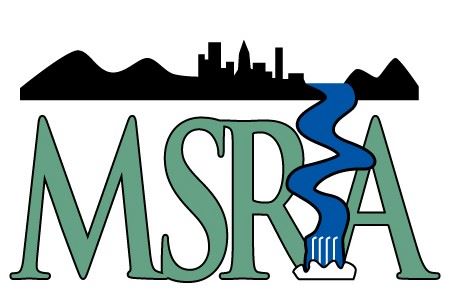WAC Courses for Future Stream Restoration Professionals
These classes are designed to equip interested students with the knowledge, skills, and techniques needed to restore and protect our waterways. This is not a comprehensive list; students are encouraged to seek out advisors and do their own research on courses that may best fit their career goals. However, this is a great starting point for students who are curious about different aspects of the field.
BIO*309 MARINE & ESTUARINE BIO
A study of marine and estuarine ecosystems. The biological, chemical, and physical parameters influencing these ecosystems will be discussed and the natural history, physiology, and ecology of selected ecosystems, invertebrate, and vertebrate phyla will be emphasized. A regularly scheduled laboratory session will complement the lecture and give students interactive learning opportunities.
BIO*104 ECOLOGY OF THE CHESAPEAKE BAY
A detailed exploration of the unique features and history of the Chesapeake Bay to demonstrate the dynamic interrelationships between ecology and human affairs. Topics include ecological principles, pollution, endangered species, conservation practices, and public policy. A regularly scheduled laboratory session will complement the lecture and give students interactive learning opportunities.
BIO*336 FISH PHYSCIOLOGY/BEHAVIOR
We will look at the physiology, anatomy, behavior, and ecology of fishes. Topics will include locomotion, feeding, sensory biology, predator/prey interactions, communication, reproduction and extreme habitats like the deep sea and polar waters. Laboratory work will include an examination of fish systematics, learning the major fish families of the Chesapeake region through online tutorials, experimental design exercises and work with online data sources to answer questions about fish behavior, ecology, and biogeography.
BIO*350 INTRODUCTION TO TOXICOLOGY
This course introduces the interdisciplinary field of toxicology at the molecular, environmental, and regulatory level. Basic concepts of toxicology including the history of poisons, dose-response, routes of exposure, and mechanisms of toxicity that pertain to human health and the environment will be covered. Emphasis will be placed on information literacy to support problem-based and evidence-based learning and case studies will be used to delve into the social, political, and global issues involved.
BIO*313 WETLANDS ECOLOGY
This course provides an in-depth examination of the function and types of wetlands with an emphasis on ecosystem services, biodiversity, and conservation. Lecture will include a broad overview of the role wetlands play in larger ecosystems as well as the hydrology, geology, chemistry, trophic interactions, and species common to these unique aquatic systems. Laboratories will include a large field-based component where students will learn to identify wetlands and their associated flora and fauna.
CHE*210 ENVIRONMENTAL CHEMISTRY
The cycling of natural chemical species and pollutants in the water, soil and air of our earth systems is a major component of our complex ecosystem. In this environmental chemistry course, we will develop an understanding of the transport and reactions controlling natural chemical species in our environment, as well as the cycling of pollutants. We will focus primarily on current issues of water, soil and air pollution and will study how scientists are cleaning up currently polluted sites, such as through bioremediation, and then look forward to how society is working towards reducing the movement of pollutants through our environment.
ENV*312 WATERSHED BIOGEOCHEMISTRY
Biogeochemistry is the study of the physical, chemical, biological, and geological processes and reactions that govern the composition of and changes to Earth. This class will examine the water, carbon, nitrogen, phosphorus, and sulfur cycles generally and more specifically related to the Chester River watershed. The laboratory component will involve biogeochemical field sampling and laboratory analysis techniques.
ENV*141 ATMOSPHERE, OCEAN, ENVIRONMENT
The course focuses on the major Earth systems of land (lithosphere), air (atmosphere), and water (hydrosphere) and explores how these systems evolve and interact through geologic time. Examples include studying global air circulation and its effect on weather, examining links between ocean currents and global climate, and exploring how stream processes help to shape landscape. The role of plate tectonics in driving the exchange of matter and energy between Earth's systems is also a central theme.
ENV*109 INTRODUCTION TO GIS
More advanced software systems such as ArcGIS are being used in academia, business, and government to manage large datasets of spatially linked information and provide the users with powerful analytic tools. The course lectures will review the fundamental theories of GIS and will also focus on the various organizational and ethical issues that impact the implementation and sustainability of GIS in our society.
ENV*211 INTERMEDIATE GIS
This second course in geographic information systems builds upon the theories discussed in introduction to Geographic Information Systems, and focuses on the more technical aspects of GIS. Laboratory activities teach the student to use more advanced functions of GIS software, and the fundamentals of advanced GIS analysis and display programs. The student will also learn to operate a precision GPS field data collector.
ENV*311 FIELD METHODS IN ENV SCIENCE
Students will learn to be environmental field researchers through two collaborative projects conducted throughout the semester. For these collaborative projects, students will begin with a literature review and then ask questions, form hypotheses, establish an experimental design, execute the design, analyze the data, and communicate the findings through writing. Other environmental research methods are demonstrated through lab activities including groundwater, river, and stream sampling.
